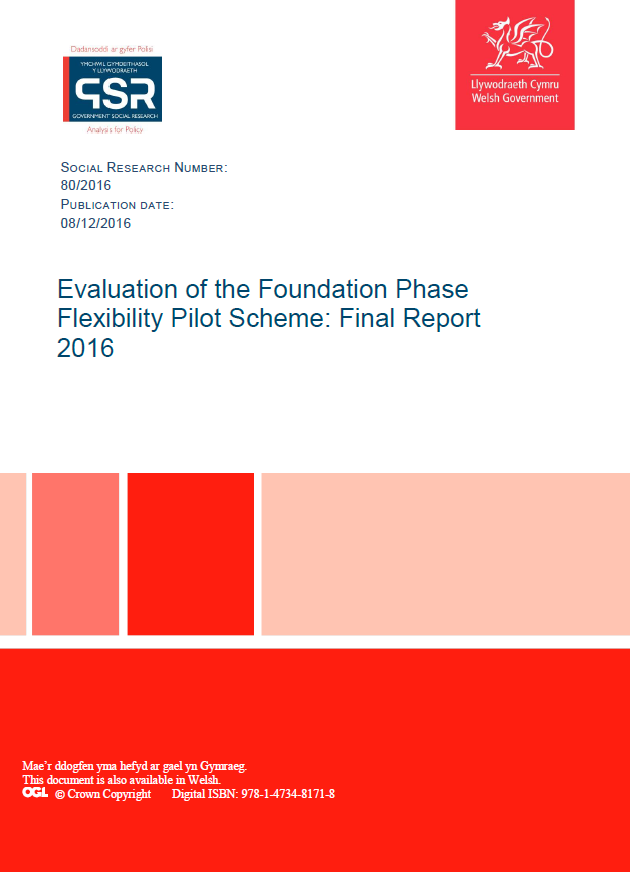Overview
Supporting children in their early years is seen as central to reforms to improve educational standards and raise the educational achievement of children in Wales, particularly amongst children from socio-economically disadvantaged backgrounds. The distinct and novel approach of the Welsh Government has led to major policies such as Flying Start, the creation of a Children’s Commissioner, and the development of numerous childcare strategies. Of most significance, however, was the introduction of the Foundation Phase – a flagship policy of early years education for 3- to 7-year old children that has combined the previous early years childcare provision (for three to four year olds) with early years education (of four to seven years olds).
Despite the potential success of the Foundation Phase there continues to be widespread concern about the educational achievement of children in Wales and significant attention given to early years childcare and education. Building a Brighter Future outlines numerous proposals for children from birth to 7 years of age, and their families, including the aim to “improve the quality […and] flexibility, accessibility and affordability of early education and childcare” (p.33) and for the Foundation Phase “to be leading the way internationally in terms of the number of free hours of early education provided, flexibility of the offer, the quality of the curriculum and outcomes for our children” (p.35). As a result the Welsh Government is supporting four local authorities across Wales to pilot different ways of offering greater flexibility in the delivery of early education (i.e. free pre-school and nursery places). These Foundation Phase Flexibility Pilots provide a key step in helping ensure the Foundation Phase is successful in improving early years education.
The two main aims of the evaluation were:
a) To evaluate how the pilots are being implemented; and
b) To evaluate the effect increased flexibility has on families.
There were three parts to the two-year evaluation:
1. A scoping exercise which included the following four components: Review of flexibility proposals; Review of measures to assess demand and monitor attendance; Review of administrative data; Comprehensive mapping exercise of current and future provision;
2. A process evaluation that would involve the following elements: Two further periods of consultation with pilot local authorities; Four waves of visits to case study providers, including the data collection from head teachers, centre managers, practitioners, parents and setting/classroom observations and the collation of detailed attendance data; and
3. Research with parents/carers: Face-to-face survey and in-depth interviews with parents of children entering each of the case study providers (including new Termly admissions); A large-scale survey of parents across each local authority.




